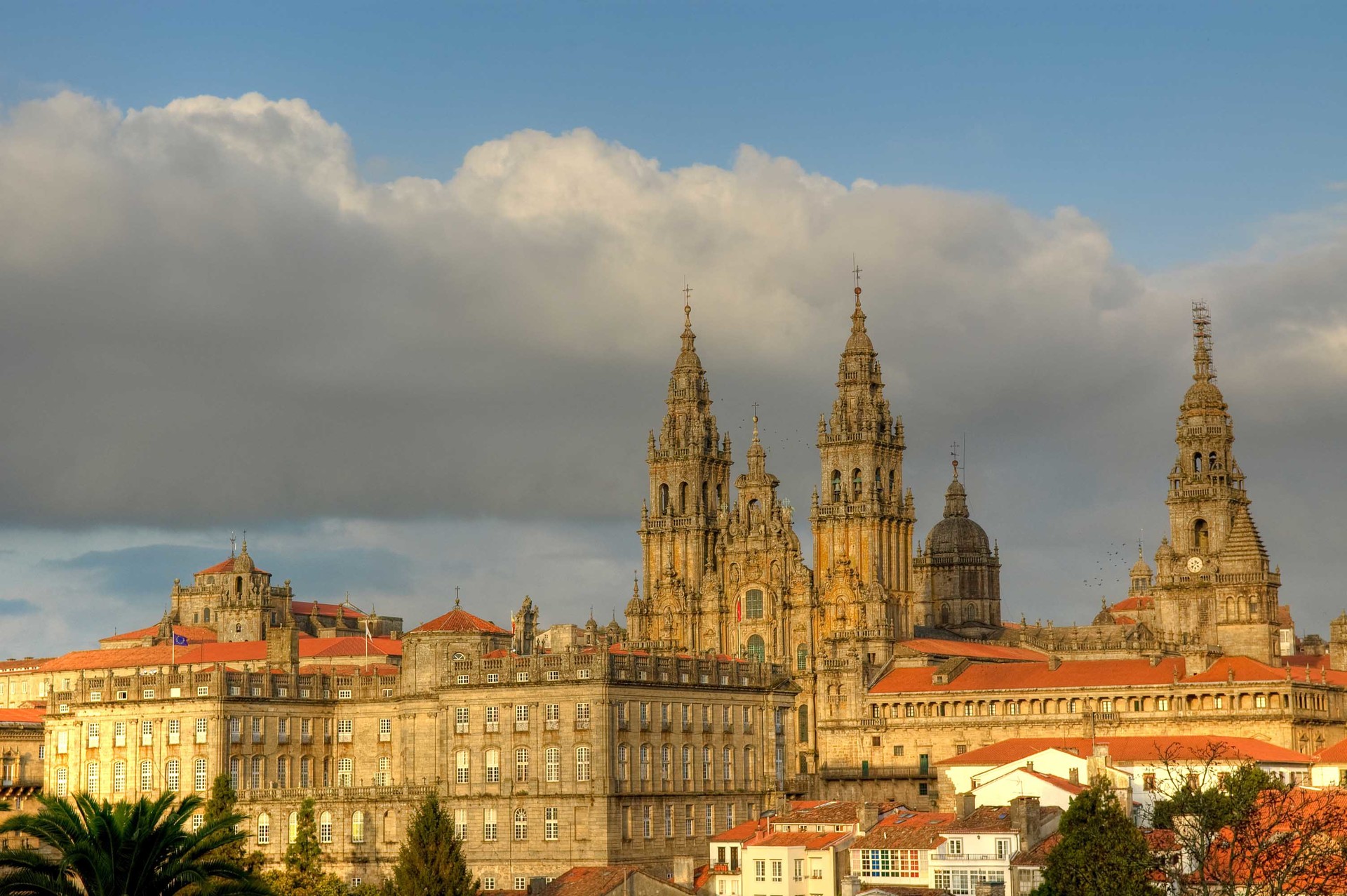10 Things to Know About Spanish People
When I first arrived to Madrid, I found that their culture is different to mine in several ways. Some of their habits I found a bit difficult to get used to and I found others interesting and new. Being there for five months and meeting all those people living in Madrid or Spain their whole life has enabled me to experience life of people known for their friendliness. I cannot claim to be an expert in those and I am not saying that those things apply to all Spanish people, but I want to tell you how I saw it.
The Latecomings
It is fashionable to be late. In general, people in Madrid leave for the party very late, so if you decide to meet at 11 pm, it is a perfectly normal hour. And so is staying in the club till 4 am or staying till the metro starts working again, so you do not have to deal with super late night buses, overcrowded with strange people. In addition, some bus lines run all night departing from Cibeles. So wherever you go to party, first take the bus that will get you there and then check the right bus home (unless you are lucky enough to have a direct connection).
Okay, so you agreed to meet at 11 pm. You arrived 10 minutes earlier as you did not want to be late. But you then waited for 1 hour for everyone else to show up. That is a common scenario among people that do not know how time works there. People arrive later. A general average from my experience is half an hour, but it can quickly get to up to 2 hours. It is even more common when you are invited to a party. Once I arrived 10 minutes after the official start and they did not have anything prepared yet. So do not take their delays personally, it is something very ordinary.
Fiesta...
Spanish people like to party and Madrid is the place most known for it. There are so many different clubs that you can go to a different one every day of your Erasmus + exchange and still have many more to discover. What they drink is beer (lots of beer) and tinto de verano (wine mixed with softs drinks such as soda). Sangria is not something so commonly drunk among young people, but tourists normally do not leave Spain without trying it at least once. Of course, they also make stronger drinks.
There are many places where you can get in for free till a certain hour (especially ladies), you just have to find it as paying for the entrance fees and the drinks can cost you a lot if you tend to party often. But it can also be for free if you drink a lot already at home and know where to go for a free entrance. It is all about reggaeton in most clubs. Even if you go out at Sol and do not know where to go to party, there are many party promoters trying to get you in different clubs. Also, there are people selling beers on the streets but beware: it is illegal to drink in the streets. Although you will not be fined anyway.
P. S. : fiesta can mean two things: party or holiday - there is plenty of those in November and December.

... and Siesta
What comes after a long party night is a hangover. It is completely normal to stay in bed getting over your ''resaca'' the whole next morning and afternoon. And often, you have another party the same night. In general, Spaniards do not like mornings. They like sleeping as long as they can and then go to bed very late instead. That is why you will not meet many people out in the streets very early and oftentimes, shops do not open before 9 or 10am, which was also something I had to get used to as they open most shops here at 7am. Siesta is normally two-hour long break (2-4pm) for taking a rest after eating lunch. During that time the streets are emptier than at other times of the day and many shops are closed. But generally, this is not as common as it may seem because many people cannot afford it: they have classes or to work during that time.
2 kisses on the cheek
When you meet a friend, you give each other two cheek kisses: left and right. That is also something you do when you meet someone new or when you are leaving. So you will be sharing plenty of kisses there as it is considered rude if you do not do it. It is a common way of greeting someone in France and Italy as well, but not in my country where even a hug is considered a bit much in many cases. Here when you meet someone, you just wave to them or shake hands if it is somebody new.
Passion
People living in the eastern country of Iberian peninsula are passionate. It can be about football where you can see thousand of fans cheering their team with all the amenities needed: dresses, logos, whistles - you name it. It can also be about bullfights. I attended one of them and I saw how loudly they cheer and how much they enjoy watching it. I could not help seeing a poor bull suffer but still - it was also a way of seeing their passion come out. It can be about politics where opposite thinking sides quickly get to a heated conversation with a high conversation volume. It can be about dancing, such as flamenco. Not all Spaniards are passionate about all the typical things but one could say that they have it ''in their blood'' to commit themselves to something they care about by defending it till the last drop of blood.

Friendliness
In general, Spaniards are more open to chat than most other european cultures. You can find yourself in the middle of a conversation as randomly as getting on a night bus where you are talking to a lady about her flat she is trying to rent. When you ask for help, they will try to help you as much as they can. They can also give you something for free after making a short friendly talk to them. Madrid is a big city with all kinds of people with different styles which is why they are used to differency. There is also a gay friendly neighborhood called Chueca with vivid colors and themed bars.
There are also many things that are more problematic. For example, they may see people from Latin America as "socially inferior". That is what happened when I was in Mallorca with three girls from there and all of a sudden, a car stopped and guys started calling names to my friends only because they were from a different area. Also the ''machismo'' culture can be perceived because women are believed to be somewhat less than men.
WhatsApp for Communication
They use WhatsApp very often. I do not know how it is in other countries, but in Slovenia not many people even have an account on WhatsApp and the social media used instead is Facebook. In our Facebook group of pharmacy I find the context of the conversation much more transparent as well as the documents and old texts published there. People also do not write in our school group so often as they did in Spain. One time, I did not check the WhatsApp conversation for two hours and when I did, I had to go through 400 new messages only to see there was nothing really important.
Most people have their own Facebook account but many do not use it very often (or as they told me only when they get really bored) so your chances of getting someone's reply soon are much higher if you have their phone number and text them on Whatsapp instead. Also, it is a more discrete method of communication since you do not get to check their previous posts and pictures and often you do not even know their full name.

Way of Speaking
Spaniards in general speak a lot. Their way of speaking depends on the part of the country where they come from: it is slower in the north, medium in the centre (Madrid) and faster in the south. There are also different accents based on their location. From what I heard, people from the south are the most difficult ones to understand as they speak so fast and they shorten the words so it can also get challenging for Spanish natives to understand someone from a different area.
As in general, they speak a lot and fast, it got difficult to understand what they were talking about many times. Not being native, trying to concentrate on what one person is saying while being interrupted by other. It was much easier in the classes because the professors spoke slowly and clearly. So when talking to someone, instead of asking ''what? '' for the third time I often just said: ''Sí, sí'' (yes, yes) even though I did not understand. Not always the best strategy, though.
Low Level of English
As you will figure out soon if you wish to speak English is that most people cannot speak it well. Not even in cities as big as Madrid and Barcelona. Not even many young people going to university. Sometimes, not even people working in a tourist office. So basic knowledge of Spanish will certainly be of great benefit there. However, even people that cannot speak English still is willing to help you so you could get a sign language help.
One reason for their low English level is that Spain is a big country so you will probably meet plenty of people that have not left it not even once in their lifetime. Also, everything on their channels is synchronized, also movies and that is why they do not have so much contact with that language. But you can still get to the movies watching it with subtitles where you might notice many foreigners. What happened to me sometimes is that when I was speaking to them in Spanish, they realized I was not a native so they replied in English. It was a nice gesture, but I was trying to improve my Spanish by using it in everyday life!
Importance of Religion
Religion plays a big role in Spanish culture. You can see many churches in the places you visit, often very ornamented and majestic. Spain is also home of the most famous church in the world: Sagrada Familia. Perhaps not so many young people consider themselves to be religious and the percentage of people attending masses every week is descending but religion still has a big role in its culture. Especially on the important holidays, there are many traditions they still follow and many of their holidays have a religious origin. Spain has a long and rich religious history. The Santiago de Compostela trail for pilgrims, takes place through the northern part of Spain. It is very famous and many people are doing it every year, sleeping in ''albergues'' - hostels especially for pilgrims.

Photo gallery
Content available in other languages
- Italiano: 10 cose da sapere sugli spagnoli
- Português: 10 coisas que precisas de saber sobre os espanhóis
- Türkçe: İspanyollarla İlgili Bilmeniz Gereken 10 Şey
- Español: 10 Cosas que debes saber de los españoles
- Deutsch: 10 Dinge über Spanier
- Polski: 10 rzeczy, które musisz wiedzieć o Hiszpanach
- Nederlands: 10 Dingen Die Je Moet Weten Over Spanjaarden
- Français: 10 choses à savoir sur les Espagnols
Want to have your own Erasmus blog?
If you are experiencing living abroad, you're an avid traveller or want to promote the city where you live... create your own blog and share your adventures!
I want to create my Erasmus blog! →







Comments (3 comments)
Hi,
I just wanted to warn that if you come to Barcelona (as I did), you should get some knowledge of Catalan language. Catalan is the own language of the north-eastern region of Catalonia and you can read/hear it EVERYWHERE. People here have no problems in switching into Spanish for you, but soon you feel yourself sometimes being "lost", as you have to ask all the time to get a Spanish version of the message they just sent to you. Eventually I decided to have some Catalan lessons (you can find them for free) as I felt as if I was being unpolite. My surprise was to realize that when you do your best to speak Catalan, people there are even more kind and helpful to you.
Hi,
Careful with that joke some people tell in Spain. They warn you because of different accents and alt-languages. But don't worry, if you speak spanish EVERYBODY is going to be polite with you and talk you in proper spanish.
There is a common joke in Catalonia where they tell you that you have to pay them if you want to speak spanish (the point is they have always money in mind and they laugh about their own cliche).
Another example: I am from Canary Islands and, as the article said above, southern way of speaking can also be tricky for foreigners, and even local people!. But we, as every other spaniard, will be glad to show our most understandable SPANISH.
Our rich culture does not understand language barriers in our own country.
See? There is one of those jokes in the comments!